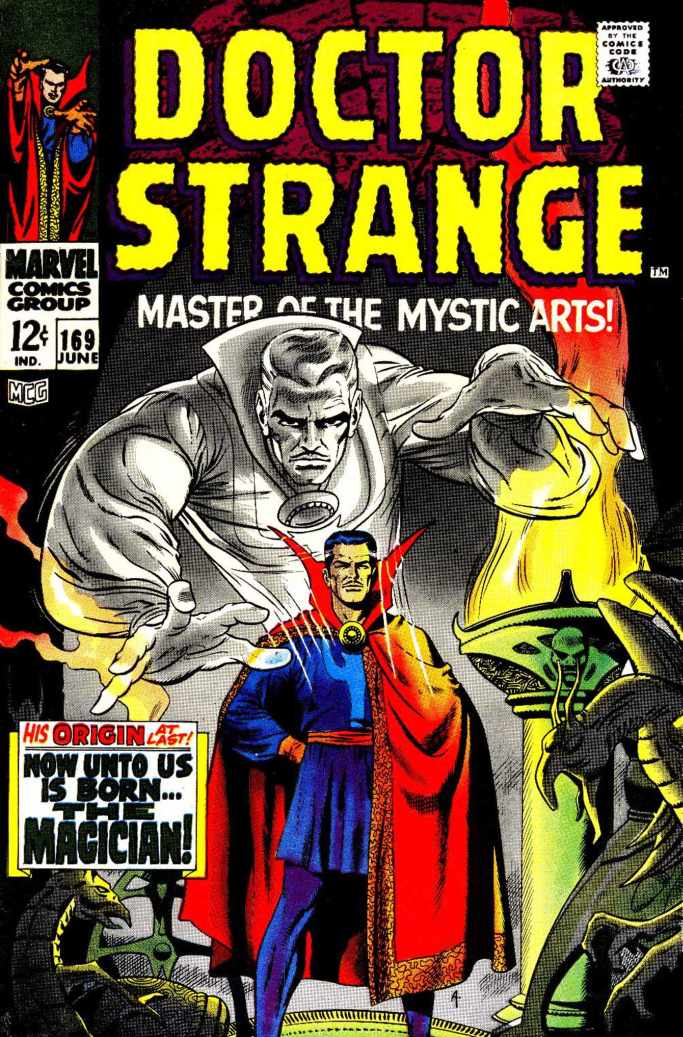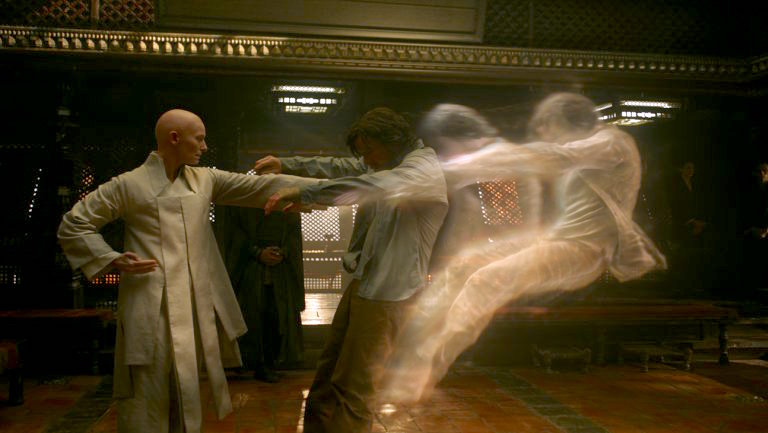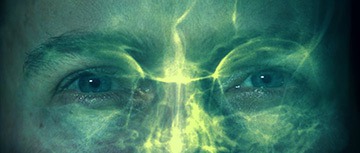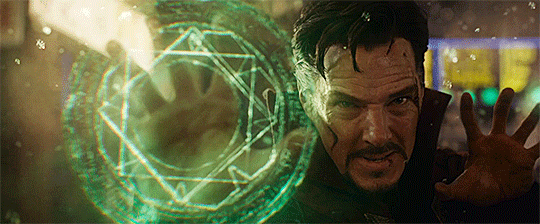by Deborah Lipp
 I have a pet peeve about comic book movies, and Professor Spouse is sick of hearing it, so I’m imposing on you all. When Professor Spouse and I got back from seeing Dr. Strange, I said, “I have one* complaint—it’s an origin story.” She said, “I knew you would say that.”
I have a pet peeve about comic book movies, and Professor Spouse is sick of hearing it, so I’m imposing on you all. When Professor Spouse and I got back from seeing Dr. Strange, I said, “I have one* complaint—it’s an origin story.” She said, “I knew you would say that.”
*Well, only one complaint that is the subject of this essay.
The fundamental problem in comic book movies is the shift into a different medium, though in many ways the mediums are a natural fit...
Unlike the book-to-movie journey, comics don’t have to be fundamentally changed to make them visual—they’re already visual; movie storyboards are already practically comics. Visual effects can be far more spectacular on film if they’re pulled off well (which Dr. Strange certainly brought to fruition). While movies can create great visual effects, it’s television that shares with comic books the idea of serialization. A comic is a continuing story with both long story arcs and one-off adventures. In that sense, it’s a TV show on the page. All of these conflicts and compatibilities are made clear in the problem of the origin story...

Dr. Strange does what virtually every superhero movie does—it relates the familiar tale of the hero’s origin. Peter Parker, high school science nerd, gets bitten by a radioactive spider. Tony Stark invents an iron suit that keeps his defective heart from killing him. Thor leaves Asgard for Earth. Jor-El sends his only son away from Krypton before it explodes.
And then what? Films tell these stories well, but they tend, thereafter, to fall apart. You can get a second movie out of a superhero—often a better one—but overall, it’s the third movie where it all goes haywire. I give you Spider-Man 3. I give you X-Men 3. I give you, moreover, abortive franchises like Fantastic Four, which just keep telling the damn origin over and over again.
Origins have a defined set of work to do: Introduce a character by hitting familiar beats for fans while being accessible to newbies, and deconstruct/modernize a well-known story. Subsequent movies have to tell a new story, which has to again engage newbies as well as people who saw the previous film, and reintroduce the character without retelling the whole origin.

Comics are great at this. An issue of Spiderman might tell the tale of the radioactive spider, or Uncle Ben’s tragic death, in no more than four panels and then move on. Professor Spouse admires the relatively unloved The Incredible Hulk (2008), because it dispenses with the entire origin story during the opening credits. It moved on.
The problem with Dr. Strange is that of any superhero origin movie. You invest energy into this new character, but have, truly, no idea if you’ll be rewarded by subsequent films. A comic book origin story is a strong indicator of what that book will be like each month, but a good origin movie gives only the barest indication of what #2 will be. When I go to see Arrival or Sully, I don’t need a subsequent film, but a superhero movie is building scaffolding for a franchise, it’s Chapter One. When Chapter One is always “how it all began”, it’s both too predictable, and too unlikely to give a meaningful sense of the rest of the book.
Television is taking this whole thing in a different direction—a direction often taken by comic books as well. Jessica Jones and Luke Cage tease out pieces of the hero’s origin throughout their premiere seasons. They start with a compelling situation—characters, villains, allies—and the hero is someone we are interested in, not because of an origin story, but because he or she is interesting.
So here’s Dr. Strange, with an origin that hits familiar beats for those who’ve read his comics. The arrogant surgeon, the quest for healing, the Ancient One, the Sanctum Sanctorum. A good story, a great cast, beautiful visuals. But do we know yet if we will love this franchise?
We do not.
